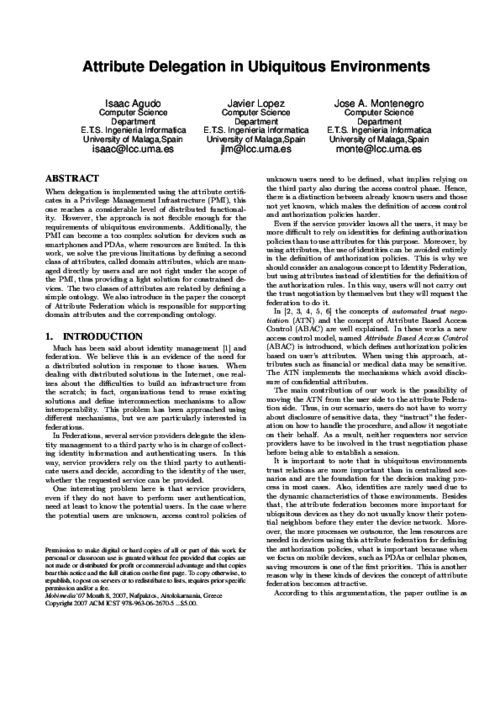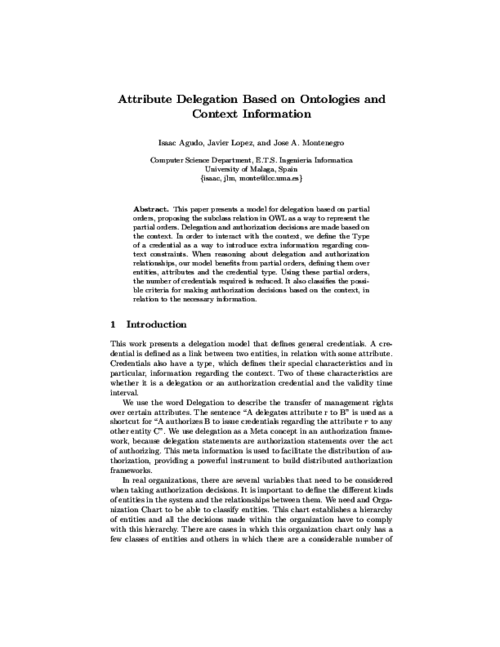 ] Title Type Year
] Title Type Year 3rd international conference on Mobile multimedia communications (MobiMedia ’07), ICST, pp. 43:1–43:6, 2007.
Abstract
When delegation is implemented using the attribute certificates in a Privilege Management Infrastructure (PMI), this one reaches a considerable level of distributed functionality. However, the approach is not flexible enough for the requirements of ubiquitous environments. Additionally, the PMI can become a too complex solution for devices such as smartphones and PDAs, where resources are limited. In this work, we solve the previous limitations by defining a second class of attributes, called domain attributes, which are managed directly by users and are not right under the scope of the PMI, thus providing a light solution for constrained devices. The two classes of attributes are related by defining a simple ontology. We also introduce in the paper the concept of Attribute Federation which is responsible for supporting domain attributes and the corresponding ontology.

10th IFIP TC-6 TC-11 International Conference on Communications and Multimedia on Security (CMS’06), LNCS 4237, Springer, pp. 54-66, October, 2006. DOI
Abstract
This paper presents a model for delegation based on partial orders, proposing the subclass relation in OWL as a way to represent the partial orders. Delegation and authorization decisions are made based on the context. In order to interact with the context, we define the Type of a credential as a way to introduce extra information regarding context constraints. When reasoning about delegation and authorization relationships, our model benefits from partial orders, defining them over entities, attributes and the credential type. Using these partial orders, the number of credentials required is reduced. It also classifies the possible criteria for making authorization decisions based on the context, in relation to the necessary information.
